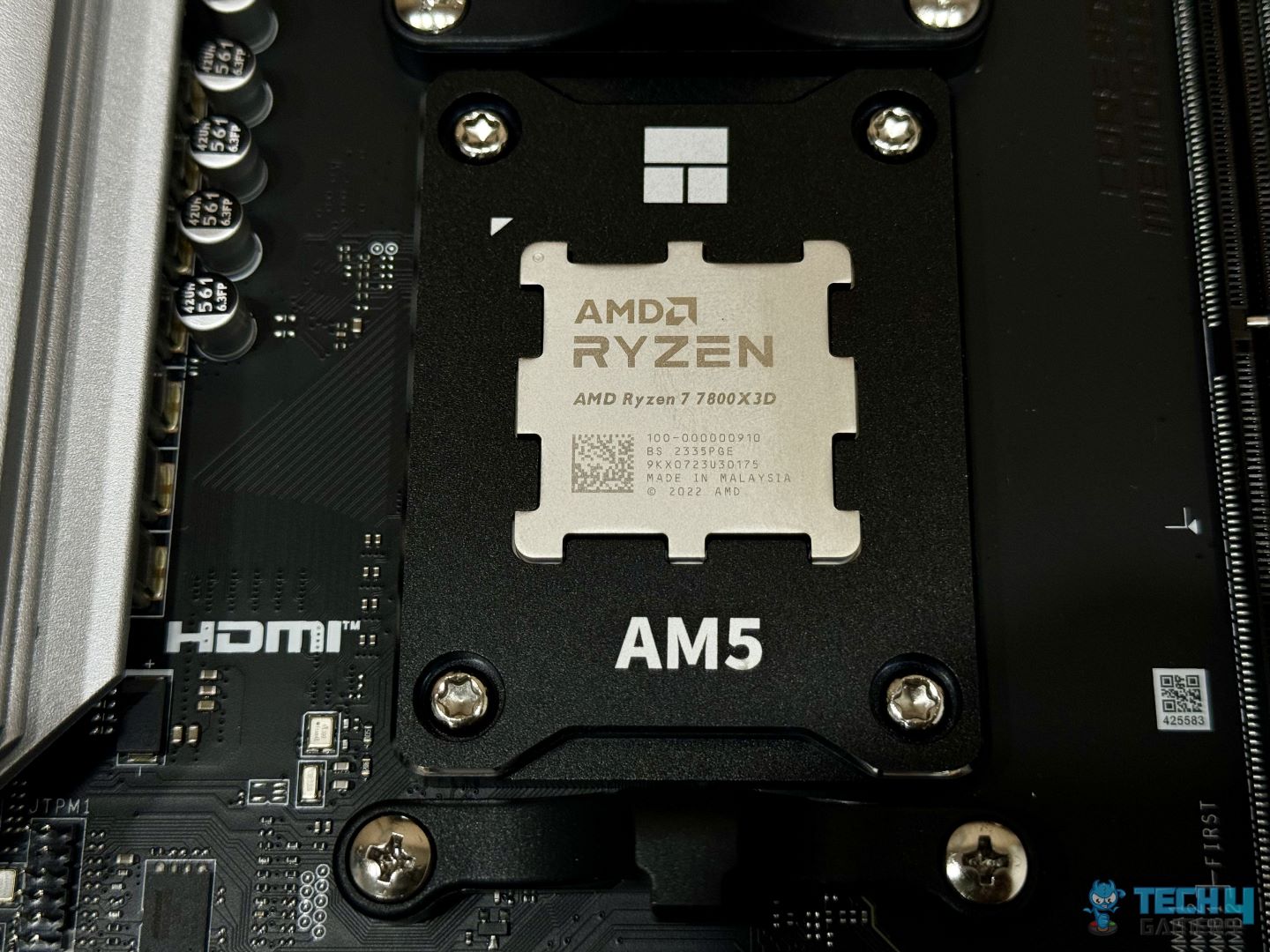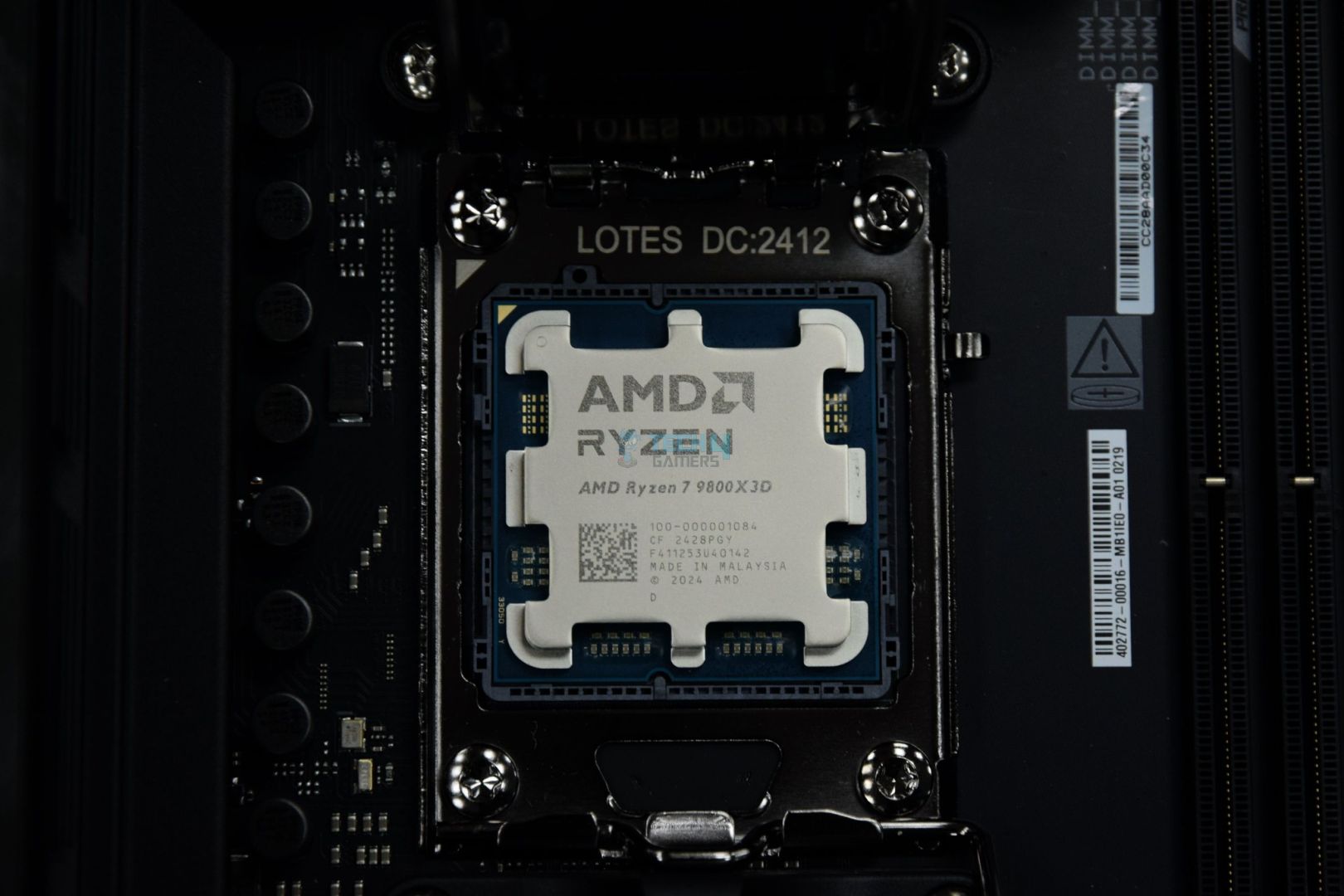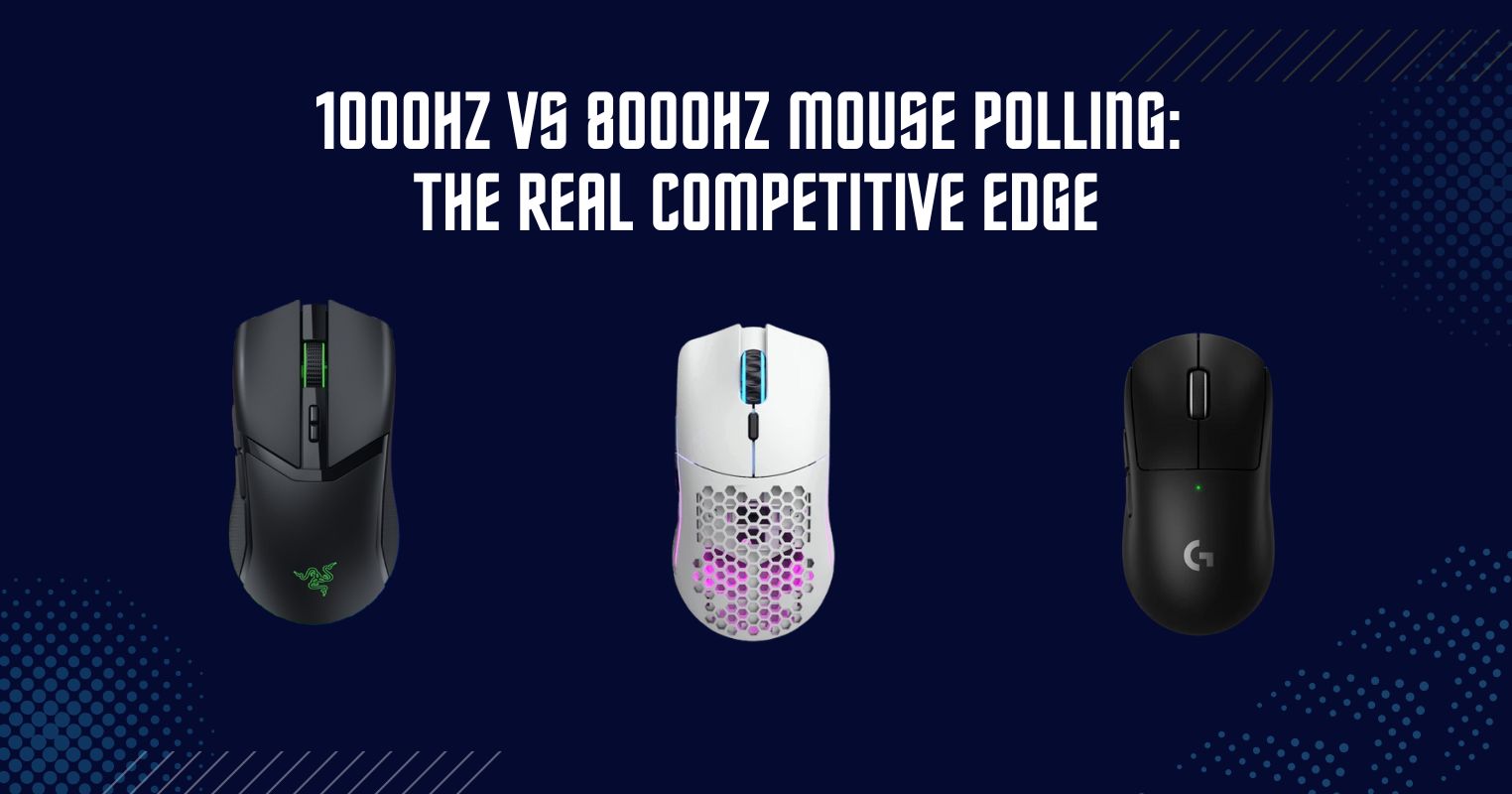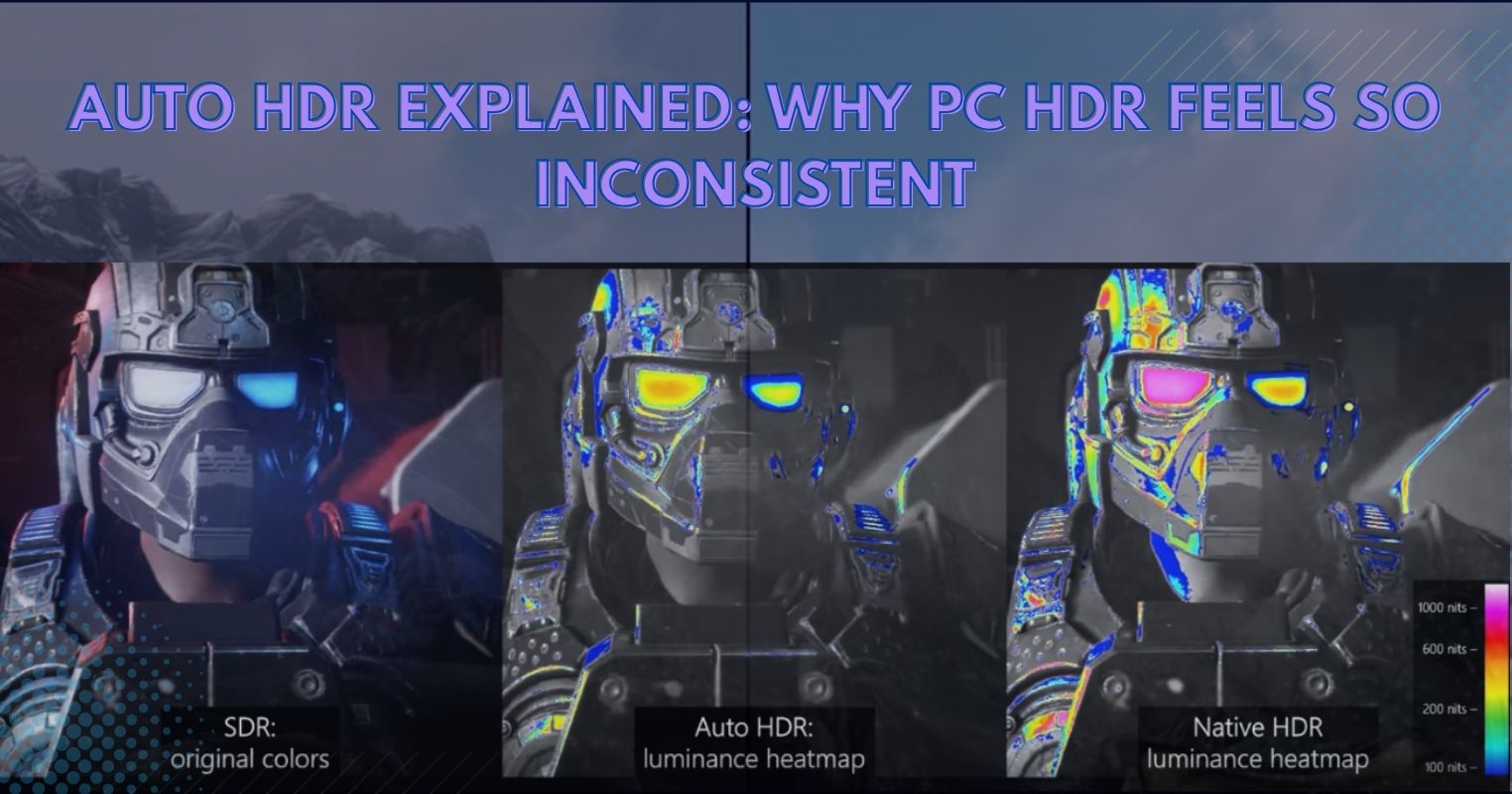- Aside from the Zen 5 architecture boost, the Ryzen 7 9800X3D has the 2nd generation of X3D architecture where the 3D V-stacked cache is below the CCD, improving thermals exponentially.
- Because of the 4nm process node, the power consumption is more efficient, leading to lower thermals even with higher wattage.
- The Ryzen 7 9800X3D is above the 7800X3D in all aspects: thermals, power efficiency, productivity performance, and gaming, making it an impressive processor overall.
- To cool the 9800X3D, you don’t need a high-end 360mm AIO cooler; an SFF chassis with a mid-range air cooler will also work.
The Ryzen 7 9800X3D CPU finally launched yesterday, and it’s already making headlines. After stealing the title of the best gaming CPU in the world from its predecessor, the 7800X3D, this beast is even better than AMD told us. With eight cores, 16 threads, a decent 5.2GHz boost clock, and a 96MB L3 cache, the 9800X3D is over 25% faster in single-core and multicore tasks. Moreover, it’s more power efficient, too. Don’t believe me? Here’s why the Ryzen 7 9800X3D chips are running much cooler than the 7800X3D and what that entails.
The New Architecture Is More Efficient
The most significant difference is the new architecture implemented in the Ryzen 7 9800X3D processor. I’m not only talking about the Zen 5 architecture here. Thanks to the 4nm process node, the Ryzen 9000 series CPUs are much more power efficient and run colder than their predecessors.
Added to that is the new 2nd generation of X3D architecture. AMD changed the location of the vertically stacked cache from above the Core Complex Die (CCD) to below it, right next to the cores. How does that help temperatures, you may ask? In simple words, before, the L3 cache acted as a heat insulator, but now, as it’s below the CCD, the heat doesn’t have to travel through the X3D’s cache. Thus, the issue has been resolved.
This is why the previous X3D CPUs couldn’t be overclocked: AMD couldn’t find a way to push the boost clocks. No more thermal issues mean overclocking is back. But that’s not all; like the rest of the 9000 series CPUs, the Ryzen 7 9800X3D is more power efficient than its predecessor.
Efficient Power Consumption Means Lower Thermals
Another vital factor for the lower temperatures is that the Ryzen 7 9800X3D is more power efficient than you’d think. While it consumes more power in some tasks, it is much more efficient than before. The main reason is the improvement in IPC performance in Zen 5 CPUs.
In practice, the 9800X3D uses around 120W, as advertised, but the 7800X3D doesn’t even come close to its 120W TDP. Even so, the former has much lower temperatures thanks to the 3D stacked cache being below the CCD this time, as I explained earlier. There’s a slight gaming performance gap, but I’m more stoked about the lower thermals, power consumption, and significantly higher productivity performance.
Performance, Power, And Thermal Benchmarks
Now, to get to the main comparison, because I know you can be skeptical about mere words, here are some benchmarks from our dedicated reviews of both CPUs. You can feast on the numbers, but don’t worry, I’ll explain in detail what’s happening in all the benchmarks. Let’s start with the gaming performance benchmarks.
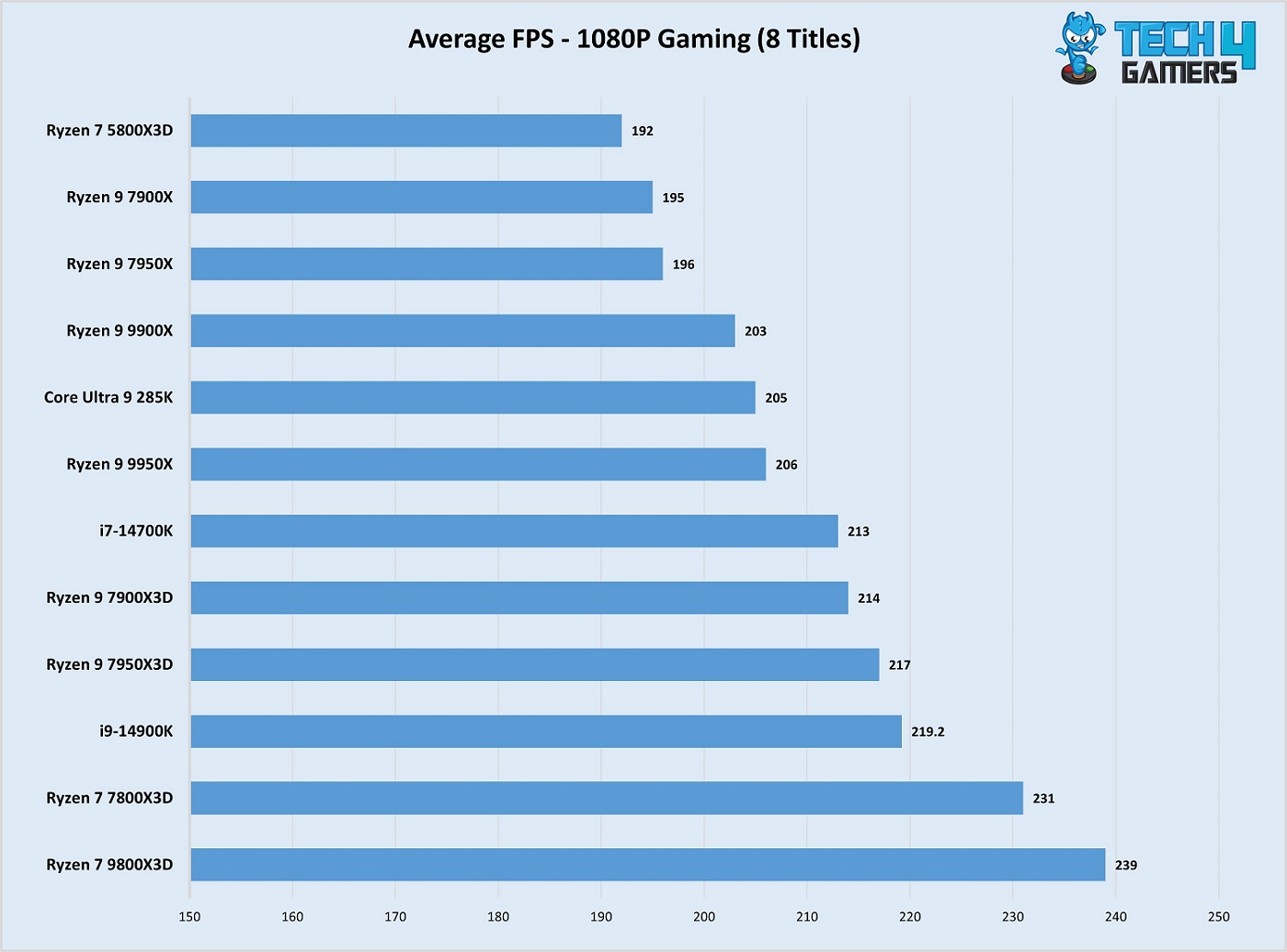
According to eight games we tested at 1080p with all these CPUs, the Ryzen 7 9800X3D emerged victorious, defeating even the Ryzen 7 7800X3D. The differential isn’t too high, but AMD has sealed its spot as having the world’s fastest gaming CPU. As can be seen, the Core Ultra 9 285K is nowhere near the 7900X3D; leave the 9800X3D. Now, we move to the thermals and power consumption charts.
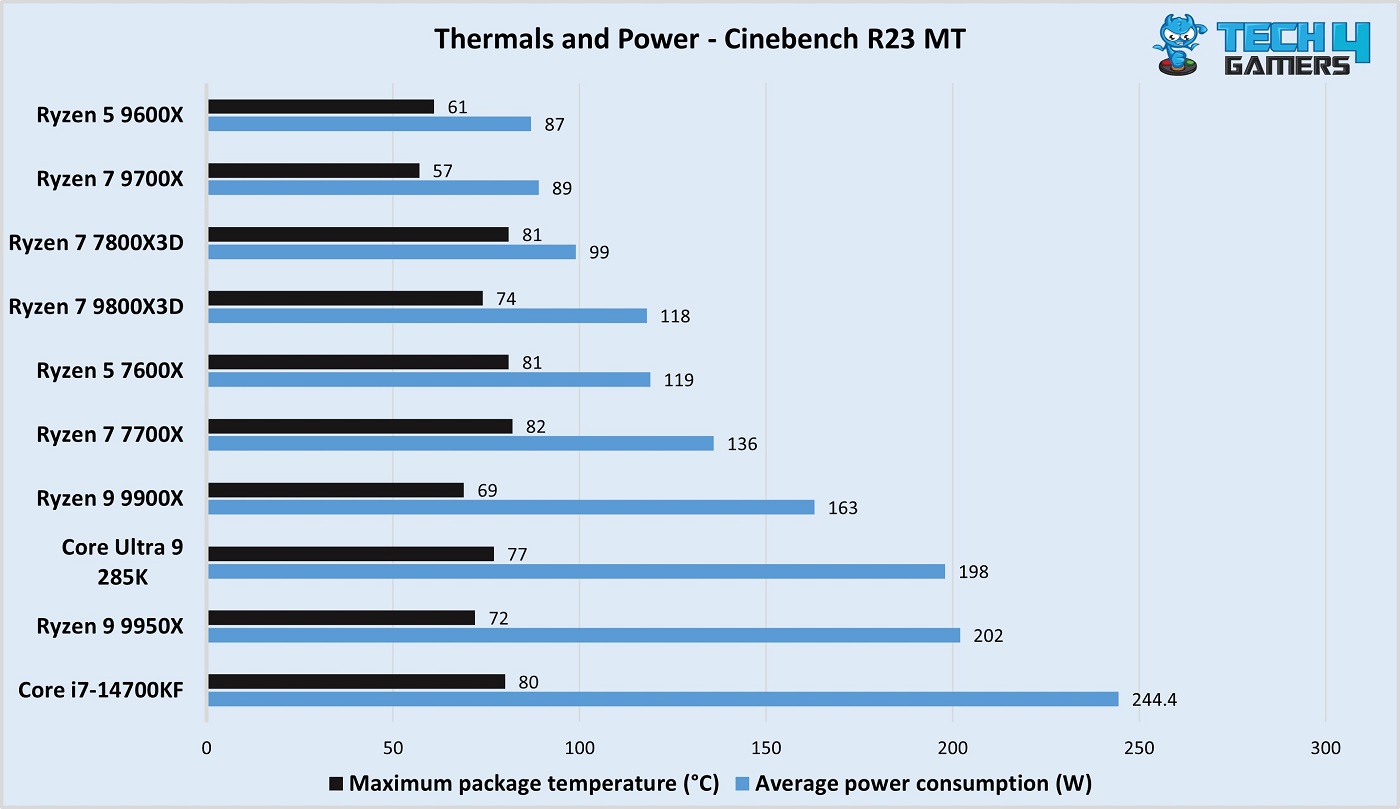
According to our testing, the 9800X3D consumes nearly as much power as advertised, at 118W, while its counterpart is lower at 99W. The amusing thing? The former’s thermals average 74°C, almost 7°C lower than the 7800X3D. Of course, we are using a 360mm AIO, the DeepCool Mystique 360, for our testing, but you can use an air cooler and still be fine with this CPU.
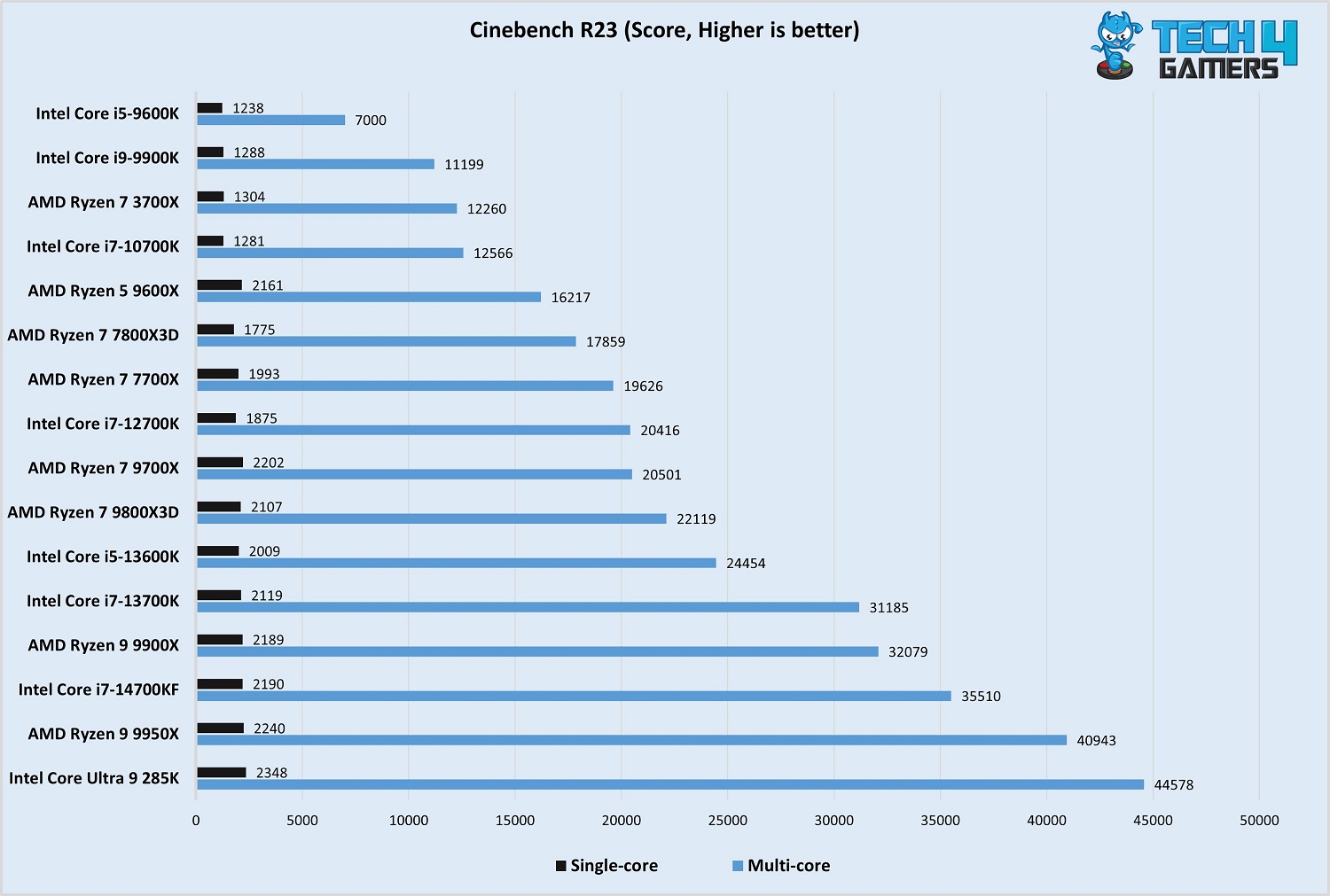
Lastly, the productivity performance. Unlike the 7800X3D, which can be considered a “one trick pony” and lacks decent productivity benchmarks, the 9800X3D exceeds all expectations, beating the 9700X, living right below the 13600K. It’s not just multi-core, either; the CPU also has a strong single-core performance.
Are The Gains Worth It?
Isn’t it peculiar that the Ryzen 7 9800X3D consumes more power, has lower thermals, and performs better than the Ryzen 7 7800X3D? This is how far CPUs have come, and I’m honestly proud to have been a part of it. That’s also why the Ryzen 7 9800X3D chips are running much cooler than the 7800X3D. The gaming benchmarks aren’t too hot, but if you want high-end productivity performance, as well, then the 9800X3D is very juicy.
The best part? You don’t need an expensive AIO cooler to keep the thermals low. Use a mid-range air cooler if you want; the thermals won’t shoot up like other high-end CPUs (cough, Intel, cough). AMD has truly gone above and beyond with the Ryzen 7 9800X3D with its efficiency and architecture, and I can’t wait to see what else the company has to offer in the future.
Thank you! Please share your positive feedback. 🔋
How could we improve this post? Please Help us. 😔
[Editor-in-Chief]
Sajjad Hussain is the Founder and Editor-in-Chief of Tech4Gamers.com. Apart from the Tech and Gaming scene, Sajjad is a Seasonal banker who has delivered multi-million dollar projects as an IT Project Manager and works as a freelancer to provide professional services to corporate giants and emerging startups in the IT space.
Majored in Computer Science
13+ years of Experience as a PC Hardware Reviewer.
8+ years of Experience as an IT Project Manager in the Corporate Sector.
Certified in Google IT Support Specialization.
Admin of PPG, the largest local Community of gamers with 130k+ members.
Sajjad is a passionate and knowledgeable individual with many skills and experience in the tech industry and the gaming community. He is committed to providing honest, in-depth product reviews and analysis and building and maintaining a strong gaming community.


